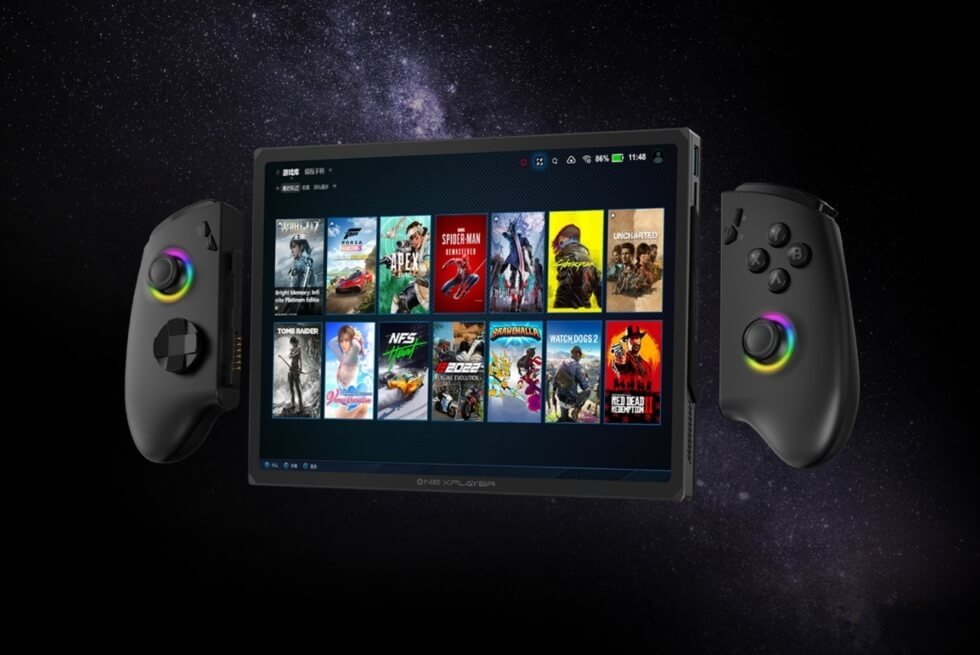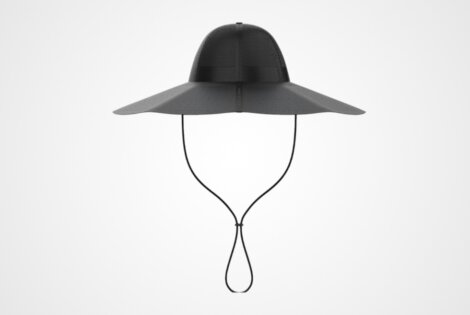Years before the Steam Deck was launched, several companies already offered handheld gaming PCs. However, most of these were plagued by poor operating system/software integration, clunky controls, and mediocre performance. It wasn’t until Valve’s portable platform turned these types of devices mainstream. Now, the competition grows fiercer as ONE-NETBOOK launches the crowdfunding campaign for the OneXPlayer X1 on Indiegogo.
As of this writing, 651 backers have pledged $751,958 with 22 days left. This positions the project at 7,519% beyond its original flexible goal of $10,000. Currently, the recent release of the Steam Deck OLED has reignited the Linux-based hardware’s popularity. Not that it ever relinquished the top spot even to more powerful rivals like ASUS’ ROG Ally, Lenovo’s Legion Go, and AYANEO’s growing lineup.
Earlier this year, at the Consumer Electronics Show, MSI made a splash when it unveiled the Claw. Instead of packing a custom AMD chipset, it was rocking one supplied by Intel. Similarly, the OneXPlayer X1 is outfitted with Intel’s Core Ultra 155H SoC, but everything else it brings to the table is leagues beyond what’s currently out there.
ONE-NETBOOK bestows this bad boy with a 10.95″ LTPS display with a 120 Hz refresh rate. Furthermore, the touchscreen boasts a 2560 x 1600 resolution, 100% DPI-3 color gamut accuracy, and 540-nit brightness. Harman AudioEFX tuned stereo speakers deliver immersive sound to enhance gameplay.
Just like the Lenovo Legion Go, the OneXPlayer X1 uses a pair of detachable controllers in handheld mode. Its size also makes it a productivity powerhouse when the magnetic keyboard is attached via the pogo pin connectors below the tablet. Backlit keys and adequate key travel are another plus here. A back cover with a kickstand allows you to adjust it to a perfect angle.
Finally, the best specs available include a 4 TB SSD and 64 GB of LPDDR5x memory. Should buyers demand even more graphical horsepower, the company offers a bundle with an eGPU. The OneXPlayer X1 reminds us of ASUS’ Flow Z13, albeit with a slightly smaller physical footprint. We can’t wait to see if it manages to win over gamers when it ships out this March.
Learn More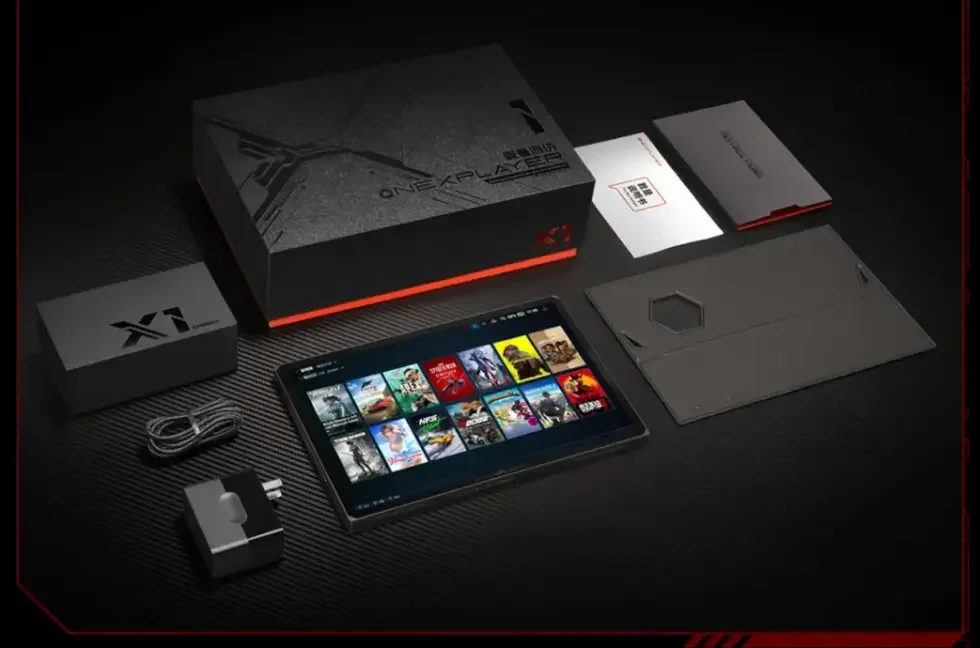
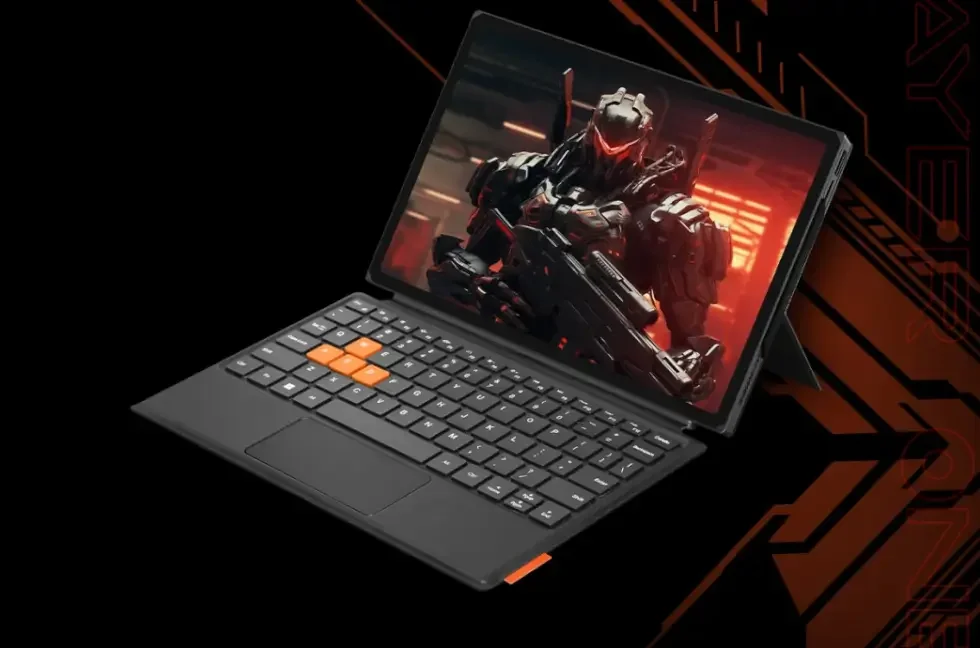
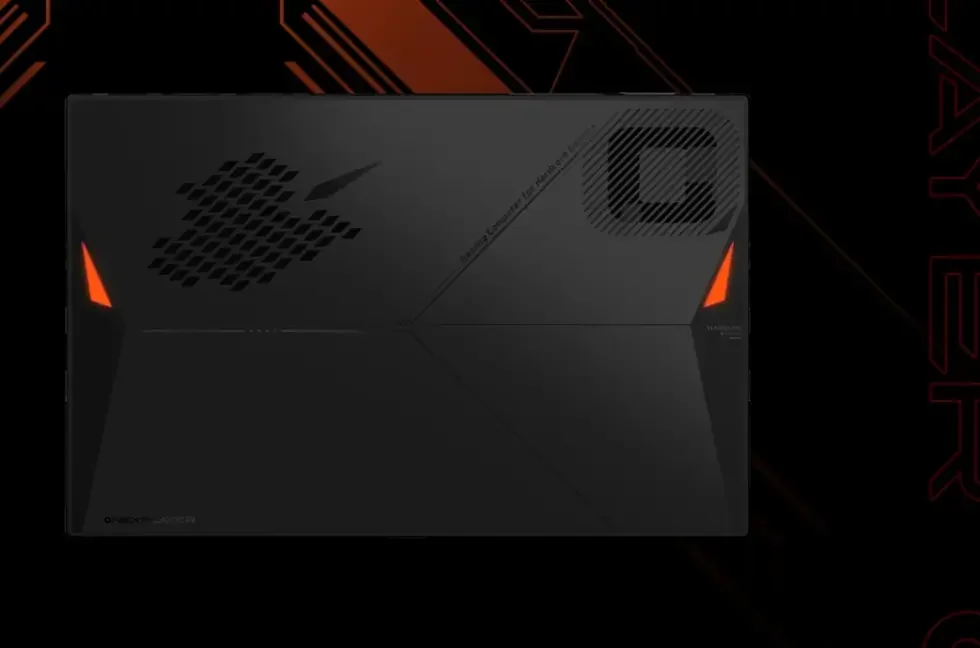
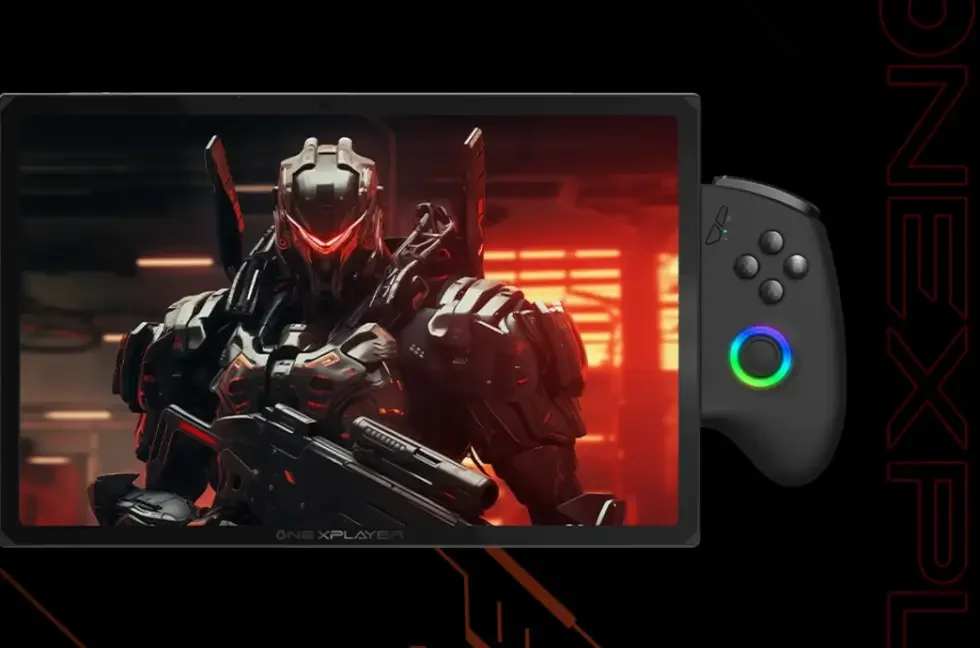
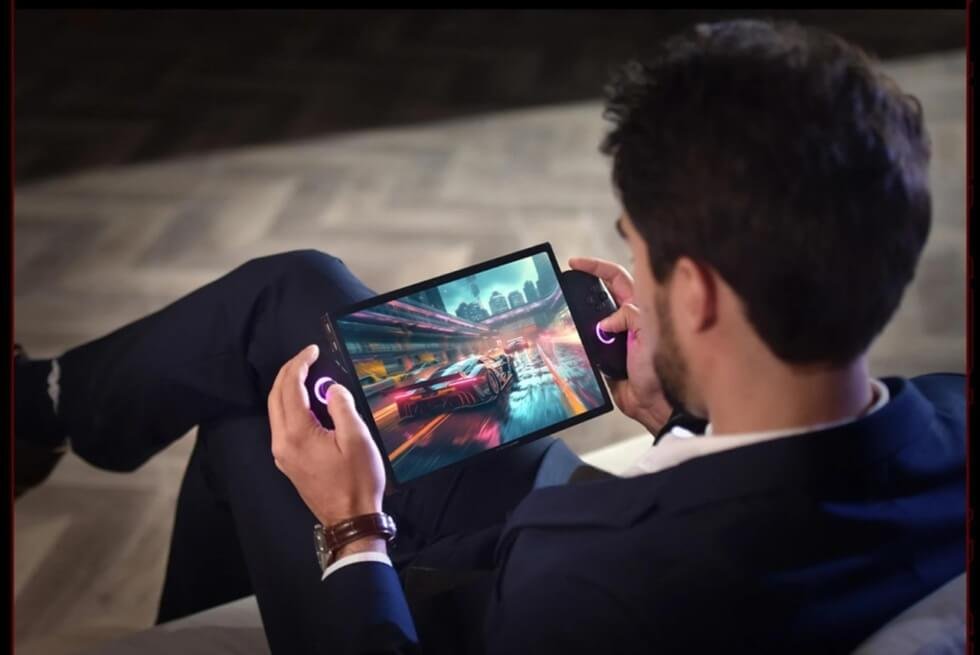
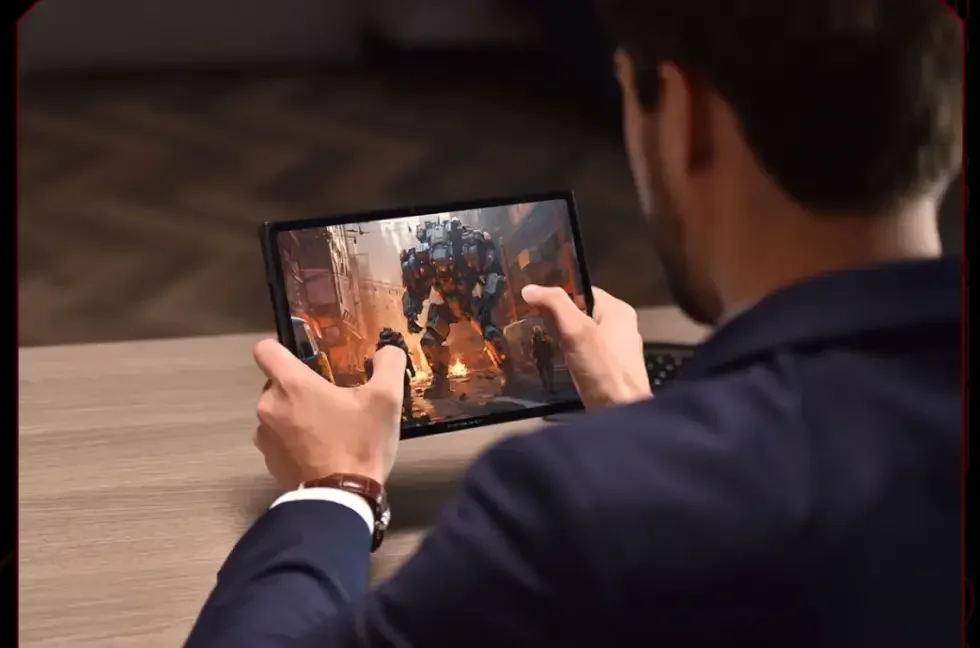
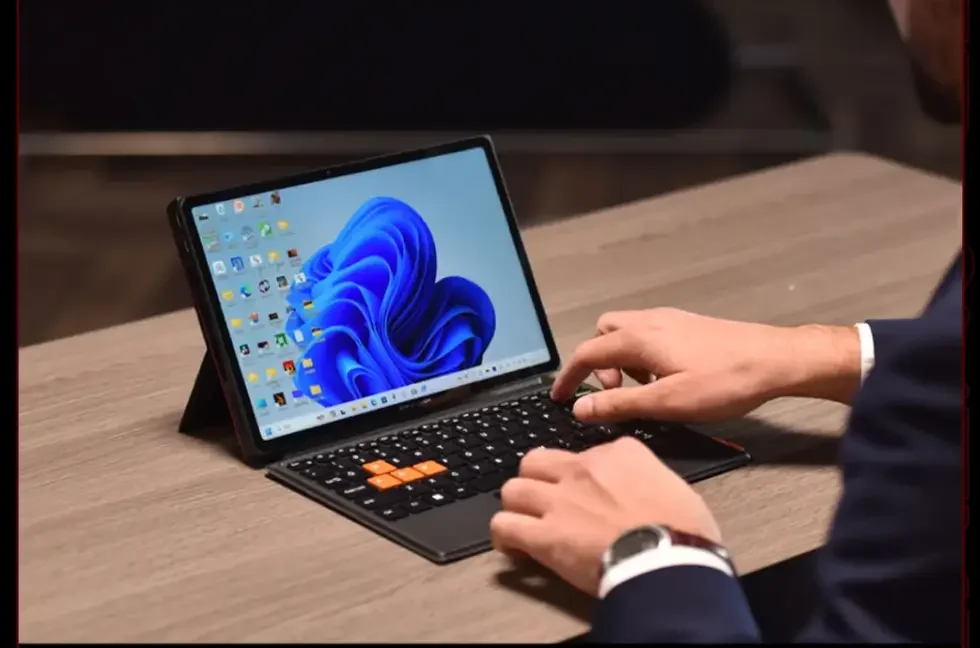
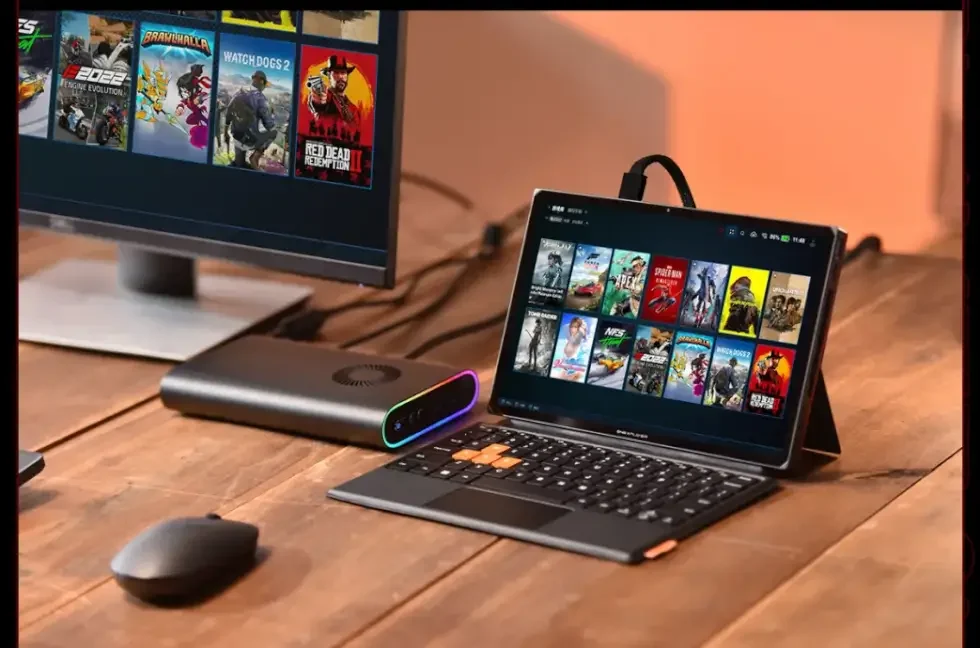
Images courtesy of ONE-NETBOOK

